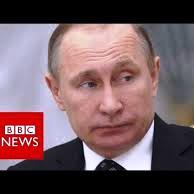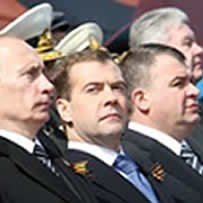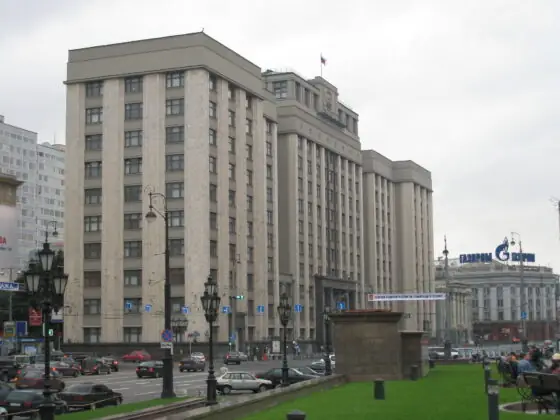(PONARS Eurasia Policy Memo) For more than twenty years, Uzbekistan has had no real political change and remains one of the most authoritarian countries in the world. How has President Islam Karimov held onto the reins of power for so long? Although he has used violence to repress threats to his regime, the longevity of his rule cannot be explained by the use of force alone.
Authoritarian regimes rely on multiple means to sustain their grip on power and maintain legitimacy. In Uzbekistan, like most post-Soviet states today, legitimacy stems from the ability of the head of state to guarantee the country’s economic development and provide a certain degree of social welfare. Among the leading costs of this arrangement is political pluralism. From the first years of Uzbekistan’s independence, its leadership has quashed all political alternatives and freedom of expression.
One area that has come under particular attack is religion. Religious organizations can potentially contest government narratives by proposing political alternatives or offering alternate (and more effective) social and economic support networks. Especially dangerous for the regime has been the formation of economic groupings operating under the umbrella of religion (like the Akramiyya movement, the repression of which led to the tragic events in Andijan in 2005).
Controlling religion is part of a larger authoritarian tendency to oppose all social structures that place regime legitimacy in question. Authoritarian regimes often counter the growth of public discontent by building legitimacy on two fundamental principles. First, they declare themselves protectors of a population they claim is under threat by a malign force, like religious extremism, which can undermine social gains. Second, they declare they are the only institution able to further the country’s political, economic, and social development. In the case of Uzbekistan, these two pillars of legitimacy are visible through Karimov’s consistent invocation of the “terrorist threat” and the regime’s efforts to strangle any religious movement that might undermine official policy, deliberately or otherwise.
Invoking Extremism to Maintain Power
Since the fall of the Soviet Union, President Karimov has persuaded the people that Uzbekistan’s stability is under constant external threat while assuming the paternalistic role of protector of the nation. The government claims to promote religious freedom while also protecting the population against any fundamentalist or extremist drift. It has defined a “good” and “traditional” Islam in opposition to a conservative and anti-state Islam, which it considers an omnipresent threat that is systematically violent and aimed at promoting an Islamist caliphate.
Official government discourse frequently employs negative terms about the undesirable version of Islam, calling it “political Islam,” “extremism,” “Islamism,” “Salafism,” “radicalism,” “Wahhabism,” and “Jihadism.” Most of the time these terms are interchangeable and largely derive from a terminology that is at once Soviet and Western and conflates foreign and extremist risks: us versus them, moderates versus extremists, the peaceful versus the violent, and democrats versus totalitarians. Government discourse about the risks of Islamist extremism has been fueled by real terrorist incidents, both foreign and domestic (such as the 2004 Tashkent bombings and other such incidents in the broader region, including those allegedly organized by the Islamic Movement of Uzbekistan).
The Uzbek government regularly makes two assertions regarding the nexus between religion, extremism, and terrorism that, for better or worse, have been reflected in its management of religion.[1]
1. All visibly practicing Muslims, whether in form (veils and long beards) or in action (daily prayer, frequent mosque-going), are deemed predisposed to radicalization.
Many surveys, official and unofficial, attest to the palpable, if moderate, growth in religious practice among Uzbekistan’s population. The government’s response to the population’s growing interest in Islam (particularly among youth) has been to exert excessive repressive control over believers rather than engage in dialogue and educational programs concerning extremism. A growing number of individuals, mainly those who display obvious signs of religiosity, have been subject to harassment or sentenced to prison time.
However, the government’s contention that devout believers are more susceptible to embracing extremism is something that has been contested by most sociologists of religion. Instead, the systematization of repression has led individuals or groups to go underground to preserve their beliefs and practices. It has also led to increased resentment against the government for not allowing citizens to exercise freedom of religion.
The government fears that any social or economic crisis could push the population towards more extremist forms of religion. Although no real independent sociological surveys can be conducted in Uzbekistan, informal field research tends to show that popular resentment has been growing since the 2000s due to economic and social problems, such as poverty, corruption, and unemployment, that Karimov has been unable to satisfactorily address. Yet it is not possible to establish a correlation between an increasingly critical attitude toward the authorities and increased observance of religion. According to a study by John Heathershaw and David Montgomery, only six percent of interviewees claimed greater religious observance during times of crisis. Among those who declared that their religion considerably influenced their behavior, 30 percent never prayed or did so only on special occasions.
Despite accusations of extremism directed at them, the vast majority of believers and religious groups forced underground do not advocate violence against the Uzbek government. It is possible, however, that marginalization could make them more vulnerable to extremist ideology. If so, government policy would have an effect opposite to that it intends. Moreover, the forced clandestine nature of these groups’ activities provides a circular basis for government propaganda to justify repressive policies, under the guise of a declared obligation to fight the phenomenon of religious radicalization.
2. Political Islam is systematically violent, anti-state, and anti-democratic.
The Uzbek government refuses to allow the establishment of religious parties or the involvement of any religious personalities in domestic politics. They claim that political Islam is systematically anti-democratic and opposed to the fundamental principles of freedom that secular power claims to defend. Although the authorities claim that secular governments defend freedom where Islamic regimes do not, there are ways in which the Uzbek regime is more authoritarian than some Islamic regimes (for instance, Iran or Pakistan). The emptiness of Uzbek newspapers, in which no criticism is tolerated, and the extremely limited number of local publications that are generally reduced to works of government propaganda stand in stark contrast to debates within the Iranian press, which, in spite of strict censorship, are still able to raise criticisms.
There is also no evidence that the general population will support extremist groups that provide social support, or that peaceful religious groups that involve themselves in civic activities will turn against democratic values. While there are undeniable risks stemming from violent groups such as the Islamic Movement of Uzbekistan, as well as the hundreds of Uzbeks who have joined the Islamic State, it is not clear that these groups would gain many supporters. Although some of these violent movements may provide social aid to gain support from local populations, they are rivaled by nonviolent grassroots movements or Islamic groups that have no links to terrorist networks. For the Uzbek government, however, associating religious-political activity of any sort to violence serves its political aims. By proclaiming non-violent Islamic groups to be anti-democratic and anti-state, it uses notions of fanaticism and criminality to bolster itself in the name of national security.
It is legitimate for a state to address the risk of terrorism. However, Islamist terrorism, as portrayed by the authorities, is a mixture of stereotypes that constitutes a tool for repressing opposition and affirming their legitimacy as the population’s sole defense against radicalization and violence. Sometimes this results in surprising conflations: some Jehovah’s Witnesses have been accused of Wahhabism, for example, while some Protestants have been branded Islamist terrorists.
Suppressing Religious and Non-Governmental Groups
Beyond their rhetoric about the so-called terrorist threat, Uzbek authorities also bolster their legitimacy by preventing the emergence of non-state political, economic, and social actors who could establish themselves as rivals to executive power and delegitimize it as a result. As Seymour Lipset wrote in Political Man: The Social Bases of Politics, legitimacy “involves the capacity of the system to engender and maintain the belief that the existing political institutions are the most appropriate ones for the society.”
This means that Karimov has to convince his people that he alone is able to guarantee the presidential function and uphold the common good. The government maintains its legitimacy by limiting the development of political awareness that might be aroused and spread by non-state actors, whether political, ecological, social, or religious. Since independence, the authorities have had increasing difficulty in maintaining these kinds of services, and the resulting gap has been, to some extent, filled by NGOs and religious groups. Mosques and other religious associations and communities (like Sufi brotherhoods) can provide space for social solidarity outside the official state framework.
Whether they are religious or secular, the majority of these organizations do not form part of any political opposition. However, the government views the presence of NGOs—whether foreign or local—in sectors such as health and education as political competition, even though the vast majority of these groups operate with the intent of cooperating with the state. They are seen as suspicious because they are capable of revealing political, social, and economic problems. Even if in an unintentional or roundabout manner, their activities may shed light on the government’s incompetence in a given area and, as a result, undermine its legitimacy.
A notable illustration of this occurred during the tragic events in Andijan in May 2005. Locally, the Akramiyya movement was viewed as a religious and charitable organization able to spread “economic morality” by establishing a higher minimum wage than the one offered by the Uzbek state. The movement created employment, promoted local economic development, and provided social welfare to the poor. Out of fear that this would be seen as a model of economic virtue in stark contrast to Tashkent’s corruption and business predation, the regime denounced it as a terrorist movement financed by foreign networks.
To counter the potential for such groups to gain popularity, the Uzbek government has responded by limiting the operational space of both religious and secular groups through various means. These include using a restrictive religion law, establishing virtually insurmountable administrative hurdles for NGOs, expelling most foreign organizations, and re-establishing and developing a local mahalla (neighborhood) system run by the state. Uzbek authorities also regulate the establishment of religious groups through a draconian registration process, and they control virtually all religious books and materials. Official executive organs, including the Ministry of Justice, tax authorities, and other relevant government agencies, regularly launch inspections of NGOs. In 2005, the government mandated a process of re-registration, which led to a significant decrease in their number. Although in 2014 Karimov recognized the importance of developing civil society, regulations and practice have undermined his stated intention. For example, in June 2015, new procedures were adopted to obtain approval of all NGO events and most NGO activities.
Conclusion
The systematic regulation of religious groups by the Uzbek government remains broadly modeled on the Soviet system, under which religion was strictly controlled. This undermines the fundamental principle of the separation of state and religion that is stipulated in Uzbekistan’s constitution. Despite the government’s concern about religious organizations taking on a more political role, there does not seem to be much of a threat in this regard, and most of the population remains in favor of secularism. Nonetheless, the Uzbek government will likely continue to bolster its legitimacy by fanning fear of instability, Islamic extremism, and violent revolution and warning of the potential for chaos and state breakdown. By conflating NGOs—whether religious or secular—with extremism, Islam Karimov will continue to maintain power and avoid taking meaningful action to address the real economic and social problems facing his country.
Sebastien Peyrouse is Research Professor of International Affairs at the George Washington University.
[PDF]
[1] Several scholars have written on this topic; see, for example, John Heathershaw and David Montgomery, “The Myth of Post-Soviet Muslim Radicalization in the Central Asian Republics,” Chatham House (November 2014).










